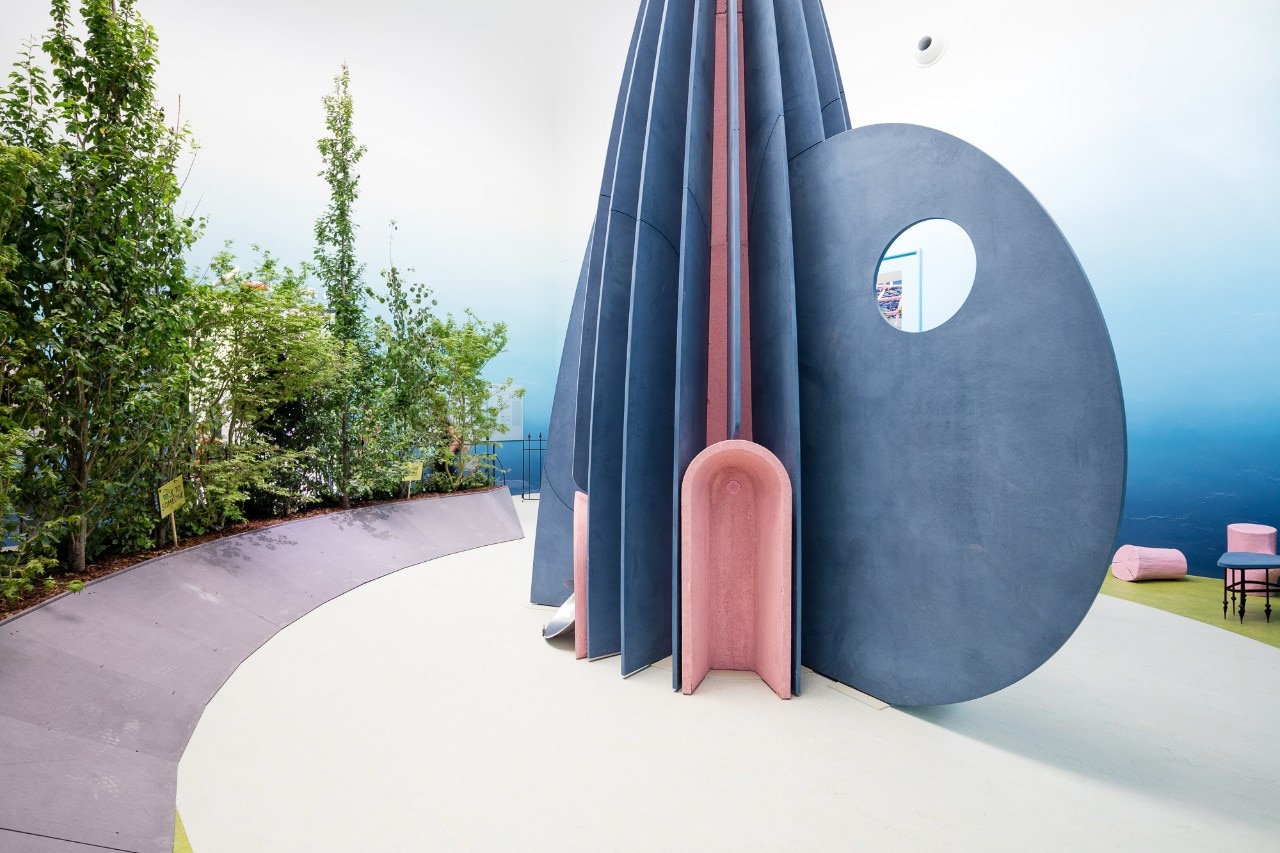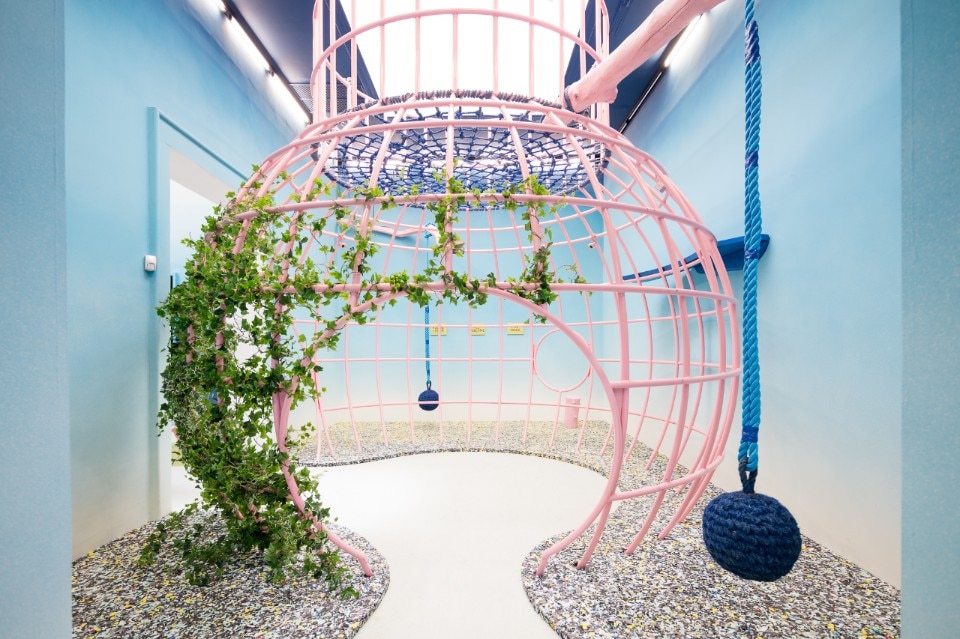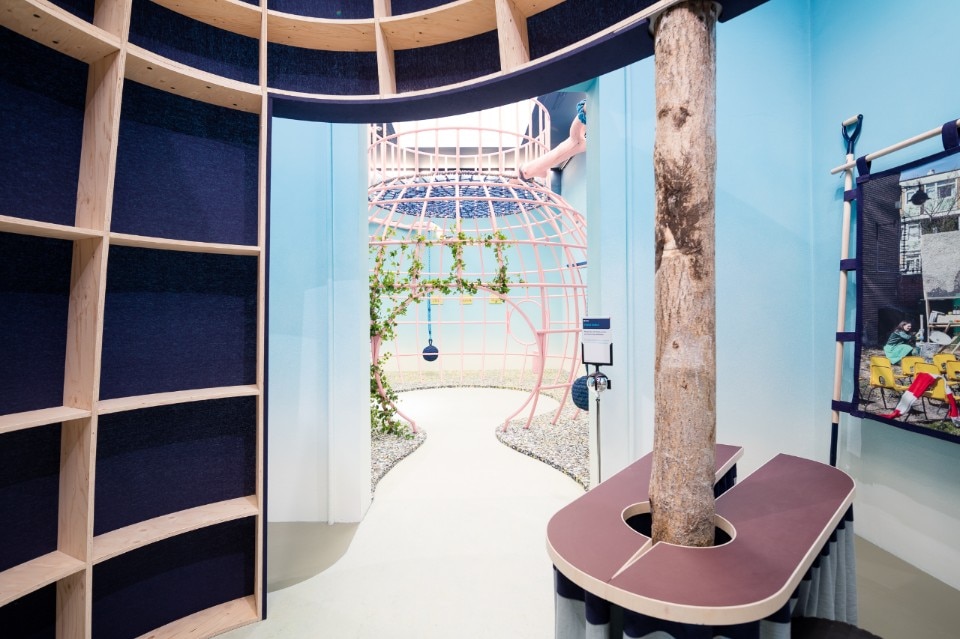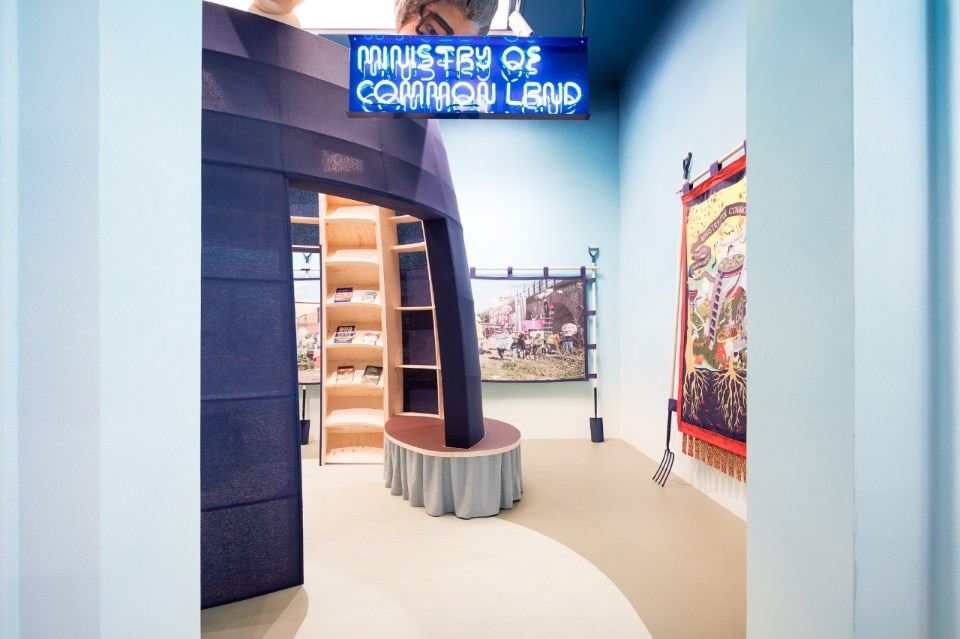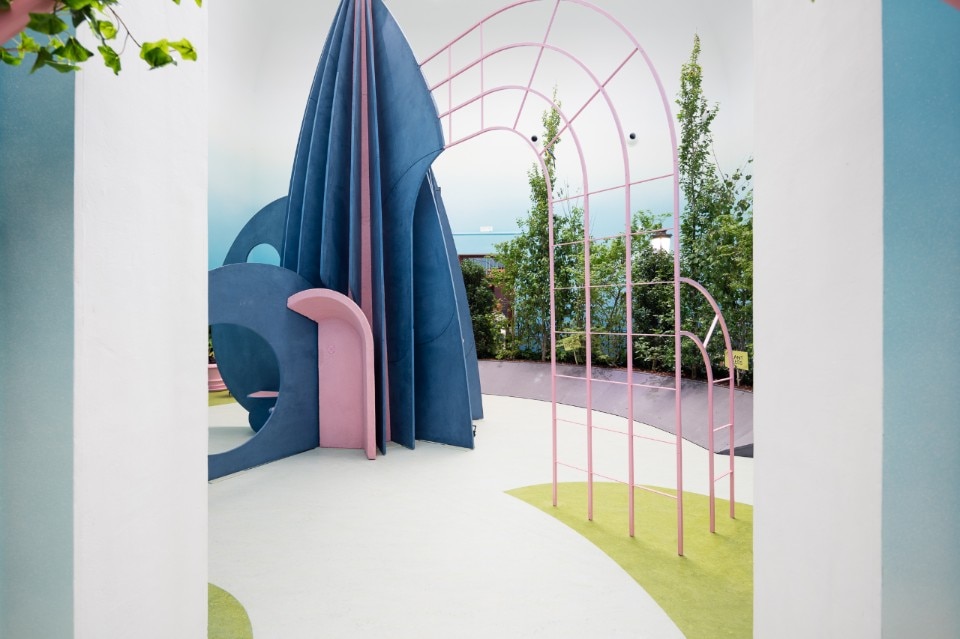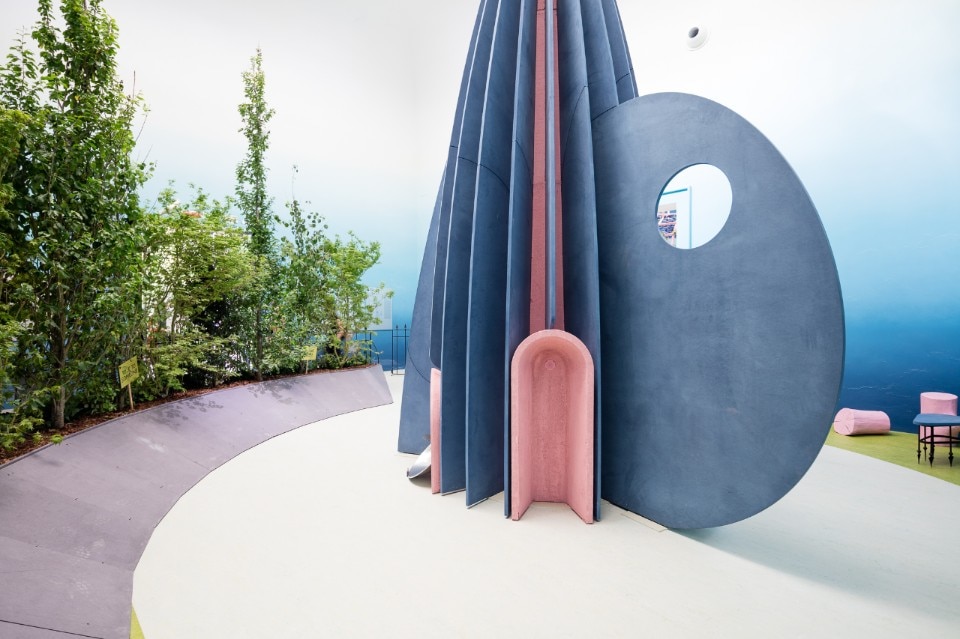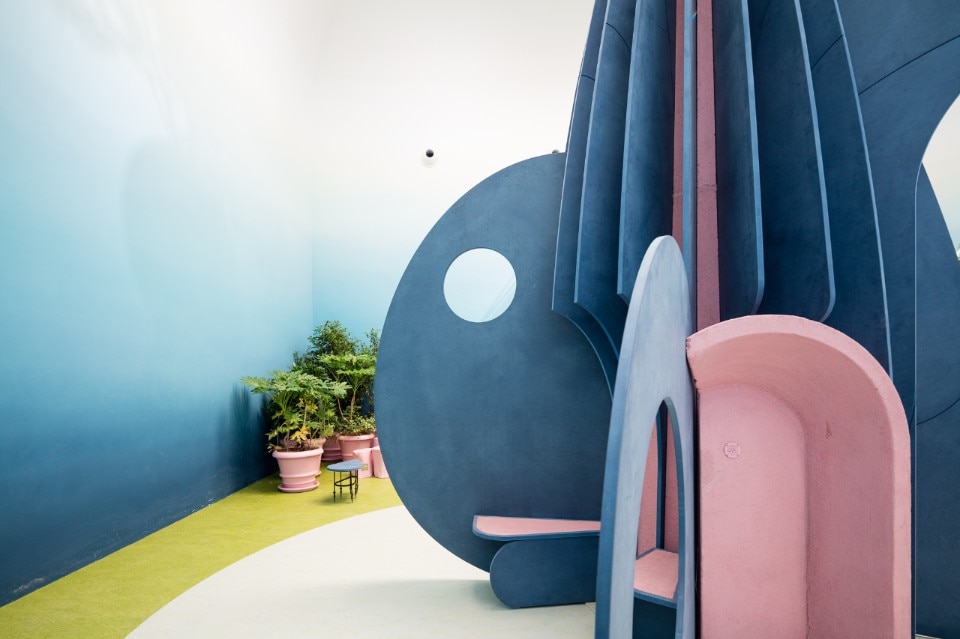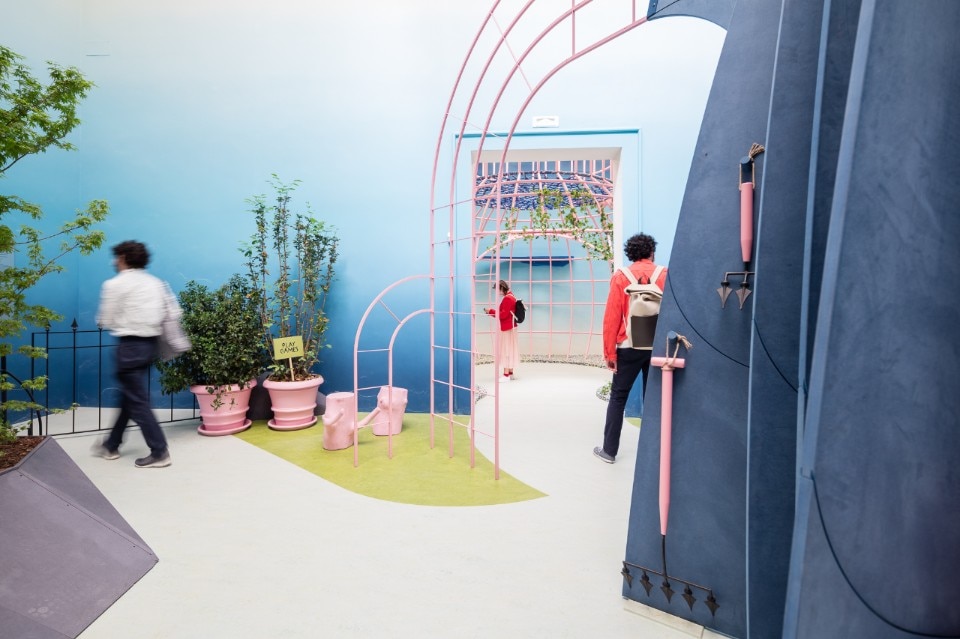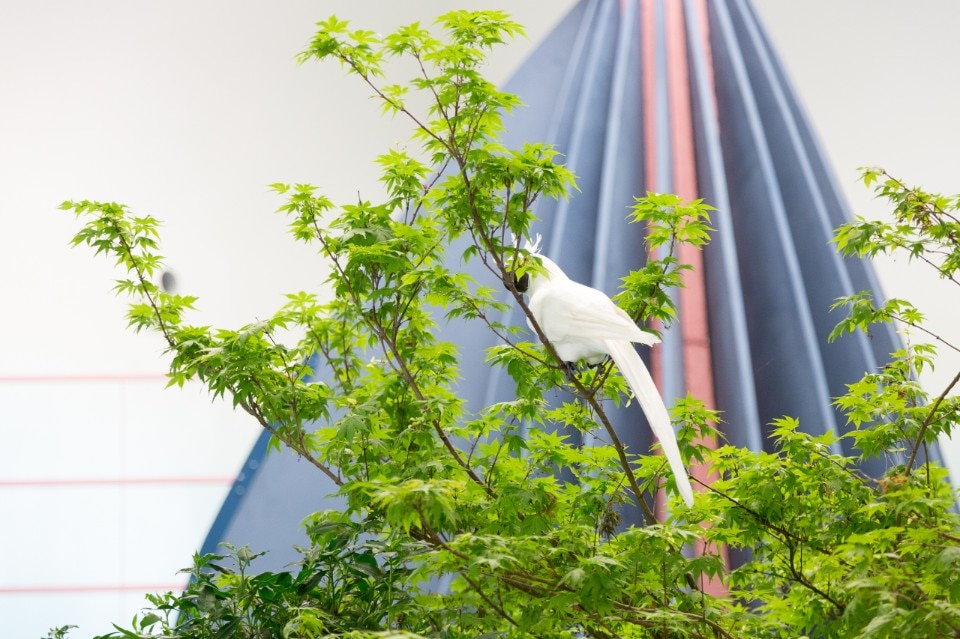There is a golden rule for living a quiet life in British society: never stick your nose in someone’s back garden. Chaotic storage room, strip of wilderness, home to the beloved shed, occasionally looked after, the garden represents the intimacy behind closed doors of a discreet population.
It doesn’t therefore surprise, yet it still stuns, the choice operated by Great Britain of dedicating to the garden the whole concept of its pavilion.
“The Garden of Privatised Delights” – this the name of the exhibiting project whose title was inspired by Hieronymus Bosch’s “Garden of Heartly Delights” – stands out as one of the few truly political pavilions of the Biennale, without compromising on the witty light-heartedness typical of the Britons’ approach to life.
In a country with an increasingly worrying social and economic polarisation, as showed – among other factors – by the 2011 London Riots and by the 2017 Grenfell Tower fire, where housing has been developing vertically for over half a century – from council estates to shameless speculation – the Covid-19 pandemic has highlighted a pressing issue: the lack of common and shared spaces, both public and private.
In a United Kingdom more and more privatised (a financial dynamic that is being increasingly exported in Europe too) and controlled by foreign speculators (mostly Russian and Arab), the curators of the British pavilion Manijeh Verghese and Madeleine Kessler, co-founders of Unscene Architecture, seem to look back to the past of the post-war Labour welfare state as the foundation of the Great Britain of the future.

Starting from a consideration on the pub like the ideal public private space – public house, in fact – the two curators aim to stimulate, through six environments, a series of reflections on how the United Kingdom could, and should, open itself to a broader interaction between the public and the private sector in matter of shared spaces for local communities.
The pavilion brings back the lessons of British architect and urbanist Colin Ward who preached – not without a pragmatic spirit – the importance of liberty and anarchy in urbanism so to establish a better relationship between humans and environment within a post-industrial society dominated by bureaucracy and privatisation.
The garden therefore becomes a space open to community shareholding according to models like those adopted by agricultural co-operatives, independent breweries or by many football clubs that are trying to create an opposition to the uber-capitalistic system of the Premier League, the most globalised sports competition in the world.
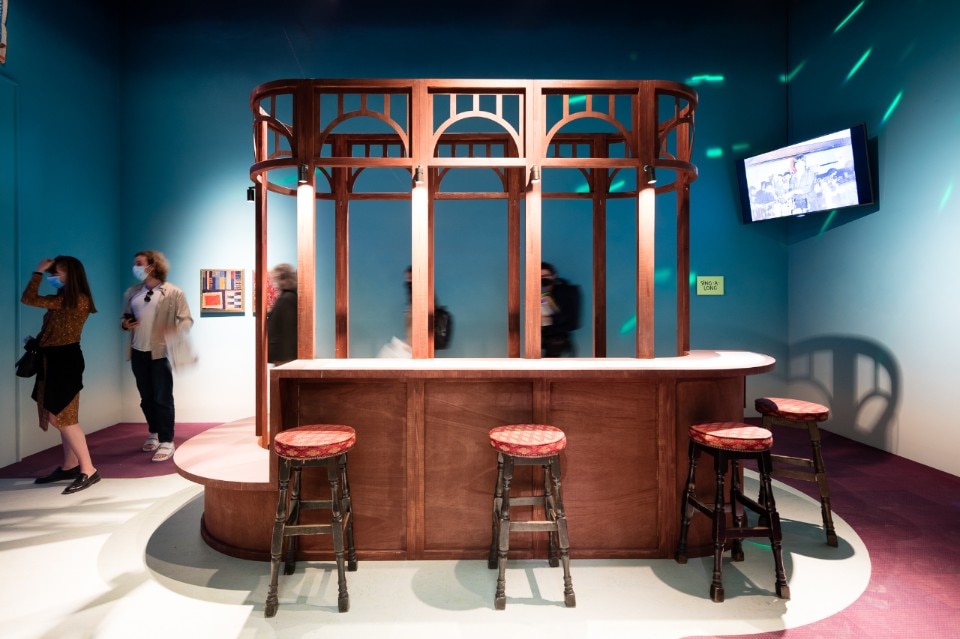
The pavilion is also strongly contemporary in highlighting how the social dynamics of the Britons are in full mutation. The traditional beer gardens – the garden religiously hidden on the back of the pubs – have been moved, out of financial necessities in the aftermath of the pandemic, to the front of the buildings, therefore contributing to establish a continental model of alcohol and food consumption in the country that had always made virtue of its isolationism.
“The Garden of Privatised Delights” hence seems to propose, as a new beginning for post-Covid Britain, the rebirth of a socialist utopia the United Kingdom had hoped to adopt during the reconstruction following the end of the Second World War.
Suspended between an ancient past prior to the eighteenth-century Enclosure Acts that abolished the open field agriculture system, and a present dominated by privatisation, in the British pavilion analogies and historical references succeed by not getting lost in rhetoric.
It is winning the decision not to export a stereotyped vision of the United Kingdom made of Royal Family, Union Jack-patterned guitars and Peaky Blinders, but the everyday life country with its scars, its multiculturalism, and the uncertainty of the post-Brexit challenges. Even the familiar theme of the pub is faced, through historical photographs, from the unseen perspective of Indian and Pakistani communities, traditionally less associated with this environment.
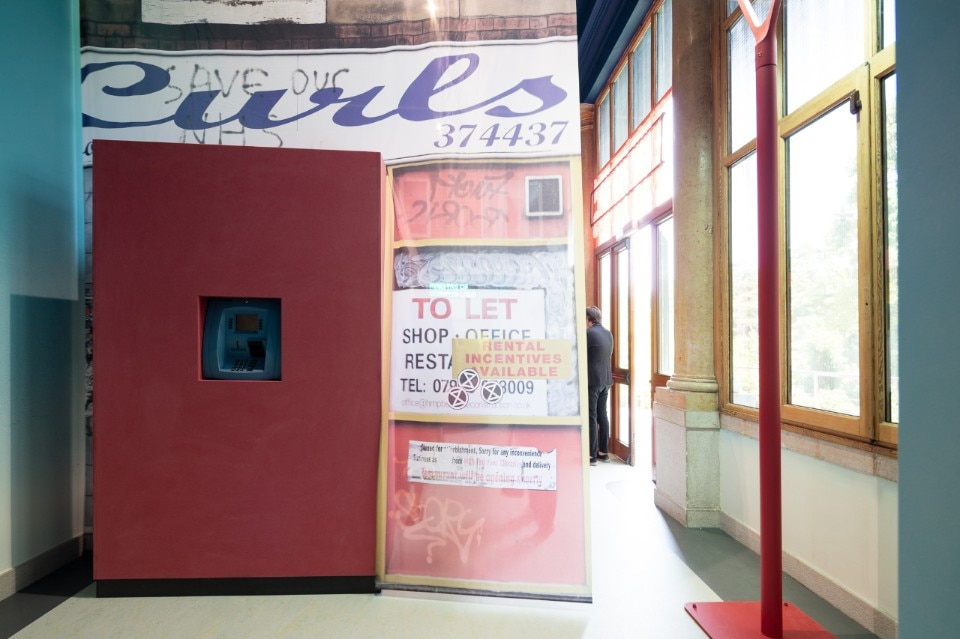
Hence, it becomes necessary to treat politics, so to take a detour from abstract theory, a realm in which the pavilions of this Biennale slip way too often.
The two curators arrange an ATM machine dispensing feelings, a biting critique to the overwhelming use of biometrics and the asphyxiating practice of data collection, and, icing on the cake, a whole pub featuring a karaoke.
Although the whole project suffers from a slightly cheesy aftertaste rooted in a 2000s mindset that is disciple of Banksy’s graffiti and of the freak dreams of muddy festivals (a common trait with several curators of other pavilions proposing, also from a graphic perspective, solutions that own to the no global aesthetic of those years).
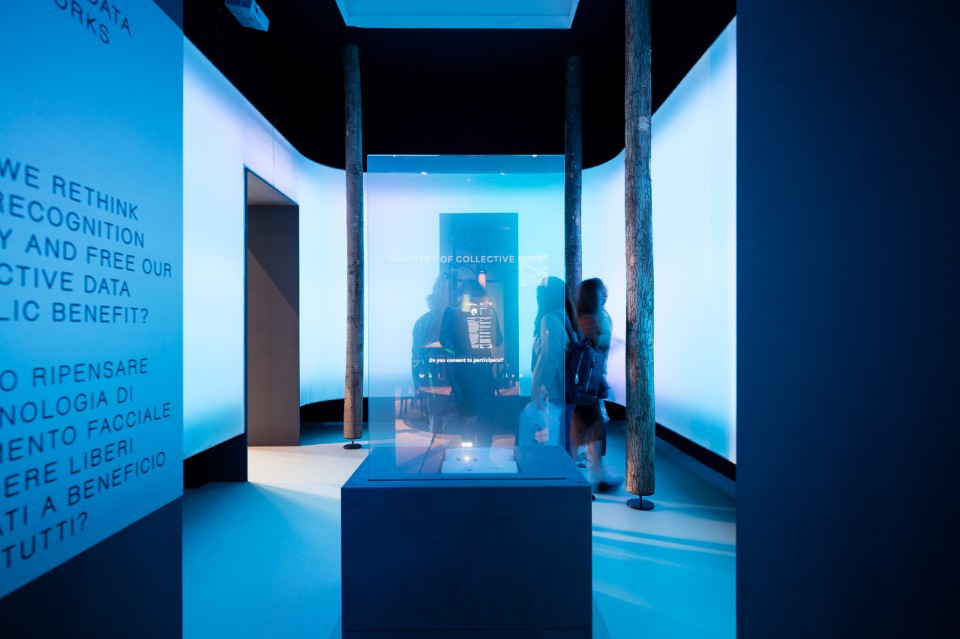
Fact is “The Garden of Privatised Delights” stands out as a militant pavilion that reminds us how behind the tidy facades of an apparently quiet nation lie rebel gardens. It’ time to bring them to the front. God save the beer.
Opening image: "The Garden of Privatised Delights", a project by Manijeh Verghese and Madeleine Kessler for the Great Britain pavilion. Photo: Giulia Di Lenarda and Giorgio De Vecchi (Gerdastudio).


